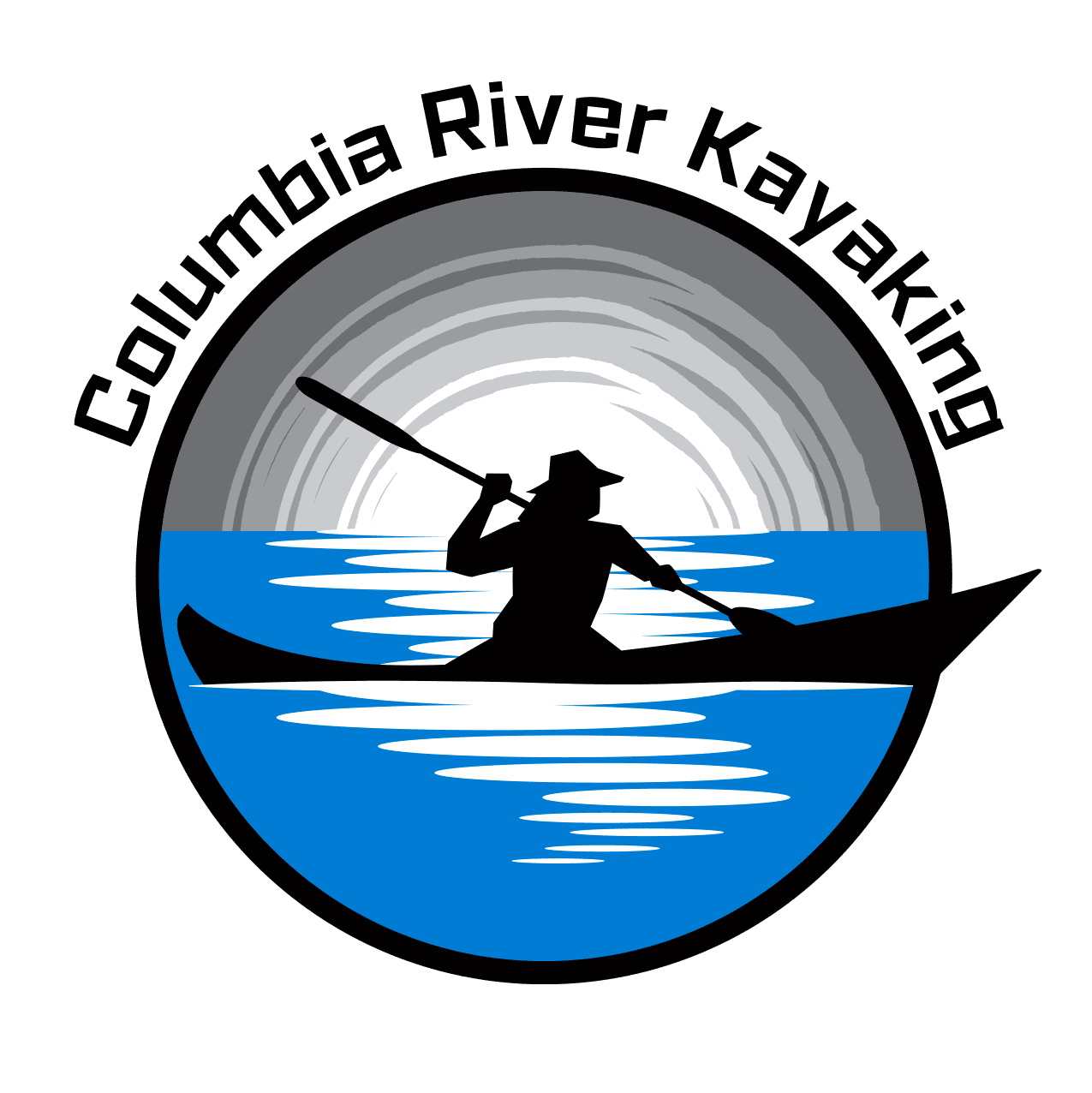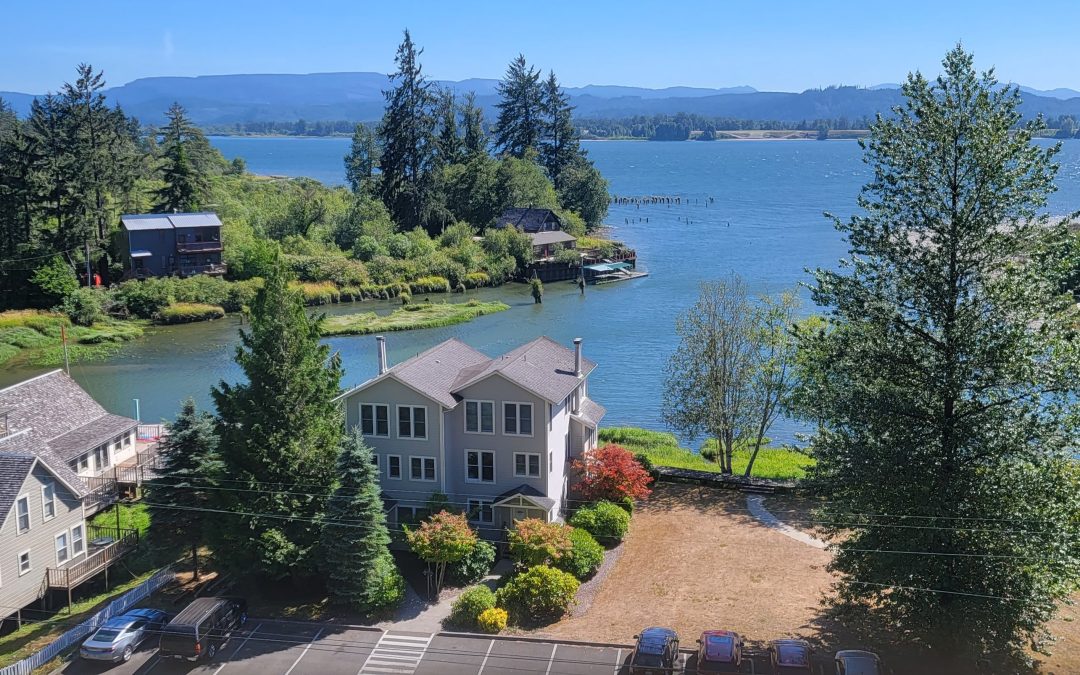Photo above shows part of the town of Skamokawa (“ska-MOCK–a-way”) provided by Road Scholar participants in 2023.
This season’s 2023 newsletter includes a local spotlight section with content graciously provided by local historian and award-winning author, Irene Martin. Read on to learn more about Irene’s life and work in Wahkiakum County including her upcoming publications and what she enjoys most about working with Columbia River Kayaking
Skamokawa is said to be a haven for those who love the outdoors and wildlife including artists, musicians, storytellers and even some oddballs. Do you agree?
Yes and no. There are people who are perhaps eccentric at times but this is because they are thinkers, deep thinkers with different experiences and different backgrounds who have thought deeply on a number of topics. There are people who are in tune with rural values tied to traditional occupations like fishing, farming and logging and those who have moved here for peace, quiet and beauty who come from urban communities. Even though fishing, farming and logging have decreased, they still occur here. Additionally, a number of local families participate in subsistence hunting and fishing as a way of providing food for their families. Wahkiakum County is unincorporated which means we rely heavily on community volunteers. It can take time to understand the extent and importance of volunteerism in a rural community. The fire department and ambulance are run by volunteers. Volunteerism is a bedrock because we recognize we must provide for ourselves. Everyone has an important place in this community and we value our neighbors even when we don’t agree on everything.
The river is an important ecosystem and place where people work and recreate. How do you see recreation in the community context?
There are different kinds of recreation within the tourism industry. I see kayaking as a model for responsible tourism because it does not leave a huge mark on the land and it’s very popular with younger and older people alike who can share these experiences with their grandchildren or grandparents. I think Andrew (Columbia River Kayaking Owner and Guide) invites people into the community who care for the landscape. To any community looking to incorporate tourism my advice is to create a careful approach that considers education and preservation in addition to revenue. Dialogue with local citizens engaged in traditional occupations, or those interested in subsistence hunting and fishing, seldom happens but is needed when decisions about tourism are being made.
Can you speak about yourself as a local and a historian? How do you fit into this scene?
I have lived here for 50 years since 1973, when I moved from Canada with my husband, Kent, whose family has lived here for four generations as gillnetters since 1870. We met when I was working as an academic librarian. After moving, I spent a lot of time fishing alongside my husband and getting to know more people in this occupation in the community. While I was looking for work as a librarian, I began submitting articles to the local newspaper and discovered a new path for myself as an author. I decided to write down oral histories of people I was getting to know in the community when I realized no-one was writing about them. My father-in-law was a wonderful man and oral historian. His memories were very accurate. This became my life’s work. I am always learning something new every day about these communities. I made choices to write about what lasts and has beneficial effects. People ask me how long it takes to write a book. It takes me 3 years to write a book, but it took me 20 years to live it.
How long have you worked with Columbia River Kayaking and what do you most enjoy about your experience with visitors to this area?
I’ve worked with CRK since they first began which is well over a decade now. I most enjoy visitors that are looking for in-depth discussions. No two groups are the same and each has their own personality. Some groups want to focus on Native American history and others are not interested in the 19th century but instead want to know what is happening now. I’ve experienced pivotal moments where during a discussion a group can expand its ideas causing people to rethink what they know and understand about an experience.
Road Scholar participants are really helpful to me as a writer and historian because I get exposure to their first impressions and questions. My first question is always tell me where you are from and what you want to learn about. I prefer to tailor presentations to what people are interested in, and in turn, I get ideas from their questions or how a person or group can turn an idea on its head. Those questions always have me thinking and trying to figure out what is going on elsewhere, and if our community fits the model or is somehow different. For example, one theme that comes up is the rural/urban divide which is not confined to Washington State. I hear the same stories from people from all over the country. It’s a dialogue and I enjoy those meetings immensely.
What is the story behind winning the 2000 Governor’s Heritage Award?
I won the Governor’s Heritage Award for my book Beach of Heaven – A History of Wahkiakum County which received a lot of praise because I wrote a county history in a different way by focusing on the people and the culture and not just a chronology. I write about things that we don’t think about, things that don’t happen anymore or that we don’t think possible now. For instance, how steamboat captains used to race each other to get to various communities first, as then they had the advantage of getting more freight to transport (raw competition before regulation), or how differently people viewed the passing of time compared to today where we often say or hear that there is not enough time. I have won other awards including the David Douglas medal from the Washington State Historical Society for my work on the exhibit of the year in 2013 at the Columbia River Commercial Fishery.
Most recently, my husband and I received a Lifetime Achievement Award from the Washington Department of Fish and Wildlife that recognizes our 50 years of work in salmon conservation. I am proud that we were recognized as a team. I used to not think very much about awards, but I see now that awards mark the fact that you have done valuable work which people have noticed. It is encouraging.
Do you have any new or upcoming books or projects you’d like others to know about?
Yes, there are three publications coming soon. I wrote a new book titled Canneries and Communities on the Columbia River which I expect to be published next year. For some time now, I’ve been asked to reprint my book Skamokawa: Sad Years, Glad Years. I just finished the revision to include follow-up about what happens next. And, I recently received a reprint request by the publisher of my book Sea Fire: Tales of Jesus and Fishing and expect to begin work on that very soon, possibly with the help of my granddaughter.

